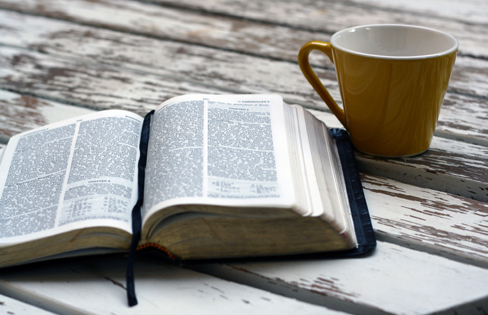Martin Luther King Jr. famously wrote in his Letter from a Birmingham Jail, “If today’s church does not recapture the sacrificial spirit of the early church, it will lose its authenticity, forfeit the loyalty of millions, and be dismissed as an irrelevant social club with no meaning for the twentieth century.” Friends, I fear we are perilously close, here in the twenty-first century, to fulfilling Dr. King’s sad prophecy for the church.
The question we must ask is how we can recapture the sacrificial spirit of the early church. What does that mean, and what did it look like in the early days of the church? We read in Acts 2 about the miracle at Pentecost, when the Holy Spirit came upon the apostles, allowing them to preach to the crowd of “devout men from every nation under heaven,” in hundreds of different languages. The multi-ethnic crowd was astonished that every people group could hear the gospel being preached in their own native language.
At the end of Acts 2 we read the iconic passage about the rhythms of the early church. “And they devoted themselves to the apostles’ teaching and the fellowship, to the breaking of bread and the prayers. And awe came upon every soul, and many wonders and signs were being done through the apostles. And all who believed were together and had all things in common. And they were selling their possessions and belongings and distributing the proceeds to all, as any had need. And day by day, attending the temple together and breaking bread in their homes, they received their food with glad and generous hearts, praising God and having favor with all the people. And the Lord added to their number day by day those who were being saved.”
There is a lot to unpack in that passage about the social, economic, relational, and spiritual values and priorities of the early church. Tim Keller says in an article from The Gospel Coalition: “If Christians today were also famous for and marked by chastity, generosity and justice, multi-ethnicity, and peacemaking—would it not be compelling to many?” Three thousand people were saved that day at Pentecost. Later on the Lord added to their number daily. Compelling to many, indeed.
Dr. King goes on in his letter: “We are caught in an inescapable network of mutuality, tied in a single garment of destiny. Whatever affects one directly, affects all indirectly. Never again can we afford to live with the narrow, provincial ‘outside agitator’ idea. Anyone who lives inside the United States can never be considered an outsider anywhere within its bounds.” He’s speaking of national mutuality, but imagine if we applied his words more broadly to the worldwide church.
Think back to the moment of the miracle at Pentecost. Picture the supernatural tongues of flame resting on each apostle moments before he begins to speak winsomely and articulately in a language he did not know and had never heard before. See the faces and features of the people in the crowd, the Parthians and Medes and Elamites and residents of Mesopotamia, Judea and Cappadocia, Pontus and Asia, Phrygia and Pamphylia, Egypt and the parts of Libya belonging to Cyrene, and visitors from Rome, both Jews and proselytes, Cretans and Arabians. Can you imagine the beautiful multiplicity of noses and eyes and hair and clothing? Can you see the skin tones as radiant and different and unique as precious jewels? All of them with their voices raised to praise the risen savior, Jesus Christ. That is what the kingdom of God looks like, friends. It is all of us. That is the single garment of destiny in which as brothers and sisters in Christ we are being woven, one with another. What happens to one of us affects us all.
I would encourage you, brothers and sisters, to pray and meditate on what it means to be the church today and how we can continue to exemplify the sacrificial spirit, the authenticity, and the brotherly love of the early church. How then shall we live? In Micah 6:8 we read, “He has told you, O man, what is good; and what does the LORD require of you but to do justice, and to love kindness, and to walk humbly with your God?” What are some concrete ways we can show justice, love kindness, and walk humbly with God today?
I know and you know that we are far more than a social club; let’s show the world who we are. We are the church.
Written By: Jess Upshaw Glass

